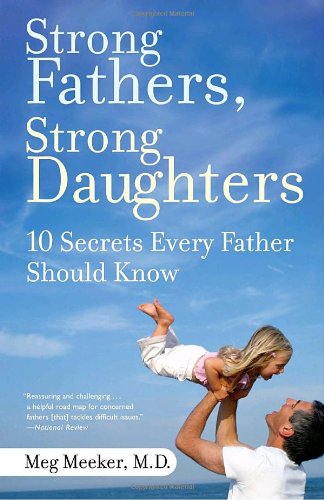Brian Williams is our new Old Testament goat. It’s like being the new It Girl, although of course, not quite as festive. And I’m caught up in it, too. It’s hard to turn away, and a part of me, the dark part of me with bad self esteem, is cheered. The handsomest, richest, most perfect guy turned out to have truthiness issues; and it was good.
He’s our sin offering. Wow, how often do I get to type those words? Not nearly often enough! It’s exhilarating. It’s Shirley Jackson’s “Lottery.” Each worsening detail is like a self-esteem ATM.
I’m watching talking heads on the biggest news stations come down on him, and I know some of these most famous men to have been unfaithful, and worse–way worse, with children. They’re in the delicious throes of schadenfreude, which part of me is, too. The sweeter part of me, the child, the girl in her little blue kilt, the mom, the nana, the black-belt co-dependent, wants to shake her fist at the bullies. Who here doesn’t lie, emebellish, exaggerate? (I’m reminded of the old joke about Jesus telling the crowd who is stoning the adulteress, “Let he who is without sin cast the first stone.” Suddenly a woman throws a rock at the adulturess. Jesus looks up, and says, “Oh for Pete’s sake, Mother.”)
No one, not one single person, has stood up for him. I would, but I’m a lying liar, too–well, maybe not as egregious as Brian Williams. I don’t tell people “I looked down the tube of an RPG”. Well, maybe that one time I did. But that was just so people would like me more.
I would stand with Mr. Williams, because he’s family. There’s a scene in Small Victories where I was giving a writing workshop to the prisoners in San Quentin, with my friend Neshama, and she told them. “I’m human. You’re human. Let’s be in our humanness together for a little while.” So yes, I stand with him.
But my solidarity wouldn’t mean all that much. My son rolls his eyes sometimes at family gatherings, because the story I’ve just told has changed from its last telling. But then again, so has his.
The sober people I know began sobriety by minimizing how bad their drinking and drug use was; by the end of the first year, they’re copping to the most graphic, disgusting behavior you can imagine. This was definitely my case; I started out mentioning that maybe I had a few too many a couple times a week, to the truth, which was that I was insane, trying to buy opiates, guys, the random RPG.
(Of course, Brian Williams did not do nearly as socially repellant things as my addict brothers and sisters did. In our defense, though, we rarely said we had been struck by RPG’s. So it’s sort of a wash.)
The truth eventually set me free. It’s the “eventually” that gets ya. But it did. I hurt a lot of people, mostly other women, but with a lot of help and solidarity, I told my truth, and there was great healing, for them and me; and what I did still sucked. Sometimes, they still do.
Take, for instance, the words for which I am probably most semi-famous, besides “shitty first drafts” and that my bad thoughts make Jesus want to drink gin straight out of the cat dish. The words were not even mine: it was my wild Jesuit friend Tom Weston’s word who actually said that you can tell you’ve created God in your own image when He hates the same people you do. Father Tom said it in a lecture 23 years ago, at a small gathering. The first few times I quoted it–probably at Salon, and possibly in Bird by Bird–I attributed it to him. Then the next few times, I didn’t. I just shoe-horned it into conversation, as if I’d just thought of it that minute; brilliant daring me
And not exactly “conversation.” More like, “While being interviewed.”
Then, it got picked up, and it was everywhere, and I started trying to correct the lie–at a big public level. In print, and on Kurt Andersen’s gigantic show, Studio 360 on WNYC, New York City’s NPR. It was the childhood dream of going to school naked. But I did it.
The line is frequently quoted, as mine. It’s a great line; it says it all. But I’m sick of cringing and saying I borrowed it. Okay–stole it. Fine.
Me, and one of our greatest historians, Doris Kearns Goodwin, right? Do we say, as people are saying now about Mr Williams, “Well, we wouldn’t be able to trust Goodwin after she plagarized.” No. We absolutely trust her. We decided to. She earned our trust back.
The point is, we are gigantically flawed. Oh, my God, such screw-ups. We can be such total asshats. And if you’re in the public eye, like Brian Williams, or in the public baby toe, like me, it goes viral.
We do the best we can. Sigh. Some days go better than others. We get to start our new 24 hours every time we remember. I’m also remembering the old wisdom story about the elder who tells a young girl that inside him, inside all humans, are two dogs, a good dog and an aggressive dog. They’re always at war. The girl asks him which dog usually wins. He thinks about it, and says, “The one I feed the most.” So I am going to feed my kinder side, forgive and trust Brian Williams, me, and, sight unseen, you. His story will to play out however it does, almost entirely based on NBC’s financial considerations. In the meantime, we can wish him and his family well.

